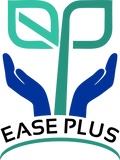What is the NDIS? More information and updates.
- Ease Plus
- Aug 8, 2023
- 3 min read
Updated: Apr 12, 2024
The NDIS provides funding to eligible people with disabilities to gain more time with family and friends, greater independence, access to new skills, jobs, or volunteering in their community, and improved quality of life. The NDIS also connects anyone with a disability to services in their community. This includes connections to doctors, community groups, sporting clubs, support groups, libraries and schools, as well as providing information about what support is provided by each state and territory government. The NDIS now supports over 500,000 Australians with disabilities to access the services and support they need. This includes supporting approximately 80,000 children with developmental delays, ensuring they receive support early so that they achieve the best outcomes throughout their lives. For more information, you can view the Participant Service Charter. We’re testing a new computer system and some improvements to the way we deliver the NDIS in Tasmania from 14 November 2022. This test is for Tasmania only and not everyone will be involved. Learn more about the Tasmania test.
Transcript for 'What is the NDIS'
Find out more about the NDIS!
Who is helping roll out the NDIS?
How the NDIS works
Supports funded by the NDIS.
NDIS and other government services
Am I eligible for the NDIS?
What is the NDIS?
The National Disability Insurance Scheme, also known as the NDIS, is run by the National Disability Insurance Agency, also known as the NDIA.
The NDIS is for eligible Australians who were either born with or acquire a permanent and significant disability. A 'permanent disability' means a person's disability is likely to be lifelong.
A 'significant disability' means a disability with a large impact on a person's ability to complete everyday activities.
The NDIS funds reasonable and necessary supports and services that relate to a person's disability to help them achieve their goals. 'Reasonable' means the support is most appropriately funded or provided through the NDIS. And 'necessary' means something a person needs that is related to their disability.
Who will I work with to get information about the NDIS? The NDIS is delivered across Australia
with the help of our partners in the community. These are organisations in your community that deliver the NDIS and can help you navigate the supports and services in your local area.
We have two types of partners in the community -
Local Area Coordinator partners
and Early Childhood partners.
If you're between the ages of 7 and 64 years of age, call the Local Area Coordinator partner
in your local government area. You can find your Local Area Coordinator on the NDIS website.
If you are the parent of a child under seven years of age with a developmental delay or disability, call the Early Childhood partner in your local government area. Early Childhood partners help you understand and access support for your child. You don't need to be an NDIS participant to get support for your child from an Early Childhood partner. They can help you access support early to give you and your family the right support at the right time.
Both the Local Area Coordinators and the Early Childhood partners are experts in navigating
the broader disability sector.
They find and connect you with mainstream and community services in your local area, whether you are an NDIS participant or not. Our partners in the community can also support you to access the NDIS if you're eligible.
What does it mean
to be an NDIS participant?
If you're eligible for the NDIS and you become an NDIS participant, you will receive funding
to work towards the goals in your NDIS plan that are specific to you. Everyone has different goals, but they could include things like improving speech or communication skills through therapy, getting help for normal, everyday living activities or equipment to help you at home or in your community, learning new skills or getting and keeping a job, becoming more independent,
or making friends and connections.
Once you have your individual NDIS plan, you will work with your chosen service providers,
who will support you to pursue your goals. Service providers are professionals who deliver support and services such as physiotherapy, speech therapy or occupational therapy.
You may also use your NDIS plan to work with a support worker, engage a carer, or access assistive technology, or complete home modifications that help you in your everyday life.
What if I don't meet the eligibility requirements for the NDIS?
If you have a disability and are not eligible for NDIS funding, we'll still help you to find and access community and other government services. Eligibility and access to the NDIS
isn't the only way you can get support. The NDIS and our partners in the community
can provide information to connect you with supports available in your local area, as well as information about what support is provided by each State and Territory government.








Comments